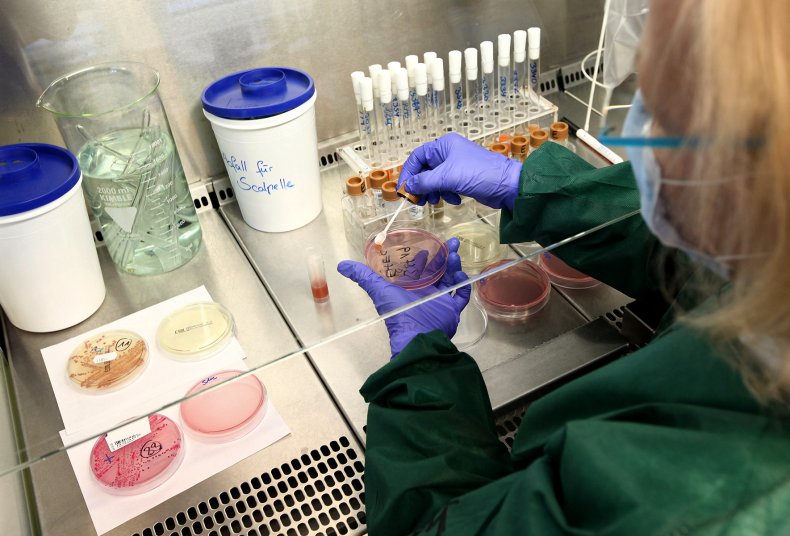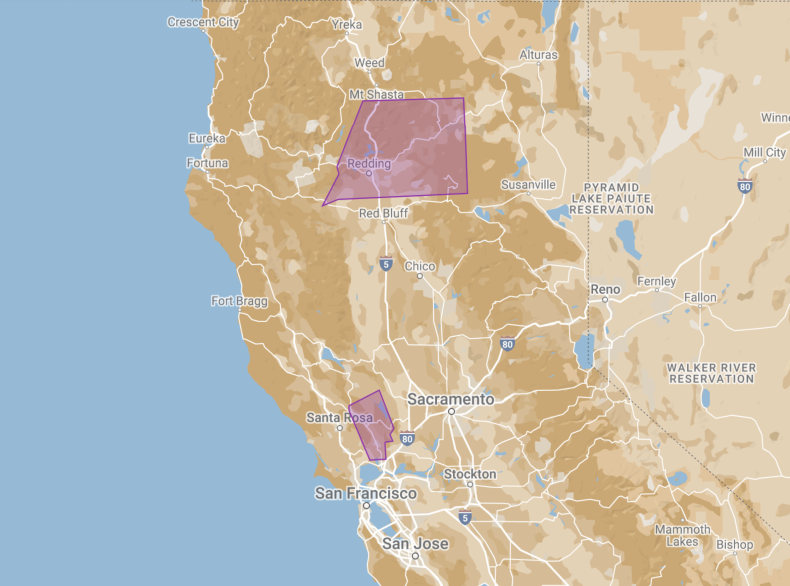Residents of the California towns of Yountville and Burney have been warned of the possible presence of E.coli in their tap water, a bacteria known to create stomach-turning symptoms when accidentally consumed.
Burney, a town of 3,000 people, according to the 2020 census, in Shasta County, was first warned of the presence of the bacteria in its water more than a week ago now, on July 12. That was the same day when tests on the town's drinking water distribution system came back positive for the bacteria, according to the initial announcement by the Shasta County Health and Human Services Agency, as reported by local newspaper, the Record Searchlight.
Since that day, all Burney Water District Customers were advised by authorities to use only boiled tap water or bottled water for drinking and cooking purposes.

On Thursday, the town of Yountville in Napa County was issued the same advisory to boil their drinking water due to the presence of E.coli, as reported by the Napa Valley Register.
E.coli—which stands for Escherichia coli—is a bacteria that normally lives in our intestines, where it's generally harmless, but has a few strains that can cause people to feel sick with abdominal pain, headaches, diarrhea, cramps, fever, and nausea, among other symptoms.
According to the Centers for Disease Control and Prevention (CDC), young children, the elderly, and those with a compromised immune system are most at risk of developing severe symptoms from accidentally consuming E.coli-contaminated food or water.
The outbreak of E.coli in Burney has already caused several people to feel sick and seek treatment at a local hospital, as reported by the Los Angeles Times. The newspaper wrote that, as of Thursday, the Mayers Memorial Hospital District had treated four patients with confirmed cases of E. coli. Valerie Lakey, the hospital's chief public information officer, told the newspaper that other patients may have had the same symptoms but had not been tested for E.coli infection.
The town has not yet identified how the bacteria ended up in its water system and, despite attempts to fix the situation, has not yet solved the problem, as per the latest update on July 18.
On Friday, July 14, the Water District added sodium hypochlorite to water storage tanks to disinfect the system. The Burney water district has informed the public that it has since been flushing the chlorine from the water system and, once dechlorinated, it will conduct samples to test the water for E.coli.

"We are working carefully through the process to assure our drinking water is safe and healthy and the Boil Water Advisory can be lifted as soon as possible," it said.
Newsweek has contacted the Shasta County Health and Human Services Agency and Yountville Chamber of Commerce for comment by email on Friday.
In Yountville, authorities said they expect to get the problem fixed by Monday, saying it will inform residents of when the water is once again safe to drink.








